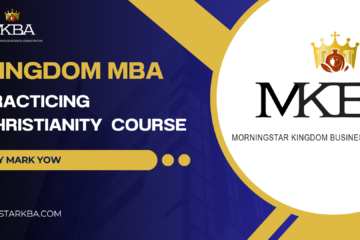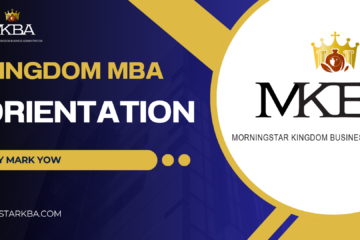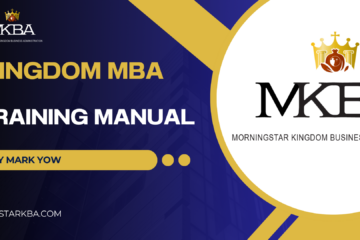May 18, 2025 – The Bread for the Week – A King of the King: What It Looks Like on Earth Today in the Business Arena – Part 2
As believers in Christ, we are called to live in the fullness of our identity, embracing the roles of prophet, priest, and king. While much is said about our priestly and prophetic callings, today, let’s focus on what it means to be a king of the King in the business arena. A king in God’s Kingdom is not just someone who holds power for the sake of power; rather, a king in the Kingdom of God is a steward of authority, a provider of justice, a leader of integrity, and a servant to the people they lead.
- A King in the Kingdom of God: A Steward of God’s Authority
The role of a king, as seen throughout Scripture, is to rule with wisdom and integrity, reflecting God’s sovereignty. The kingship that we are called to on earth is not about domination but about stewardship. A king in the Kingdom of God recognizes that all authority is ultimately God’s, and that their role is to serve as a representative of His rule on earth.
Biblical Foundation:
- Psalm 115:16: “The highest heavens belong to the Lord, but the earth He has given to mankind.”
- Matthew 28:18: “All authority in heaven and on earth has been given to me. Therefore go and make disciples of all nations…”
A king of the King understands that their authority, whether in business or in life, is not self-appointed but granted by God. Just as earthly kings are entrusted with dominion over a specific realm, a business leader (king) is entrusted with authority over their company, employees, resources, and decisions.
Application in Business:
- In the business arena, this means leading a company with a heart of service. A king of the King does not use their position for personal gain, but instead recognizes their role as one of stewardship, ensuring that every decision aligns with God’s will and principles.
- The business leader, in this sense, is a steward of resources—capital, talent, products, and services. Their primary responsibility is to use these resources to build up others, to make ethical decisions that reflect God’s character, and to bring about flourishing for their employees, customers, and society.
- A King of the King Leads with Justice and Integrity
A king’s primary responsibility is to establish justice and righteousness. In the Kingdom of God, kings do not oppress or manipulate for personal gain; rather, they create an environment where fairness, equity, and truth are upheld in every aspect of governance, including business.
Biblical Foundation:
- Proverbs 29:14: “The king who judges the poor with fairness—his throne will be established forever.”
- Psalm 72:1-2: “Endow the king with your justice, O God, the royal son with your righteousness. He will judge your people in righteousness, your afflicted ones with justice.”
As a king in the Kingdom of God, a business leader is called to run their company with the highest standards of integrity. They are responsible for setting the tone for the entire organization, creating a culture where honesty, transparency, and fairness are the cornerstones.
Application in Business:
- A kingly business leader promotes ethical practices across the board—whether in financial dealings, marketing, or employee relations. They understand that success built on compromise, dishonesty, or exploitation is not true success, and it will ultimately crumble.
- They ensure that every employee is treated with dignity and respect, especially the most vulnerable. They act justly, ensuring fair wages, safe working conditions, and opportunities for advancement.
In a kingdom business, justice isn’t just a lofty principle; it’s a practical pursuit. It’s ensuring that customers are never deceived, that suppliers are paid fairly, and that the company’s impact on the community and environment is always considered in decision-making.
- A King of the King Serves Others Through Leadership
Jesus Himself, the ultimate King, modeled leadership through servanthood. The Kingdom of God turns the world’s definition of leadership upside down. While the world defines leadership in terms of power and control, a king of the King leads through humility, service, and empowerment.
Biblical Foundation:
- Matthew 20:26-28: “Whoever wants to become great among you must be your servant, and whoever wants to be first must be your slave… just as the Son of Man did not come to be served, but to serve.”
- Mark 10:42-45: “You know that those who are regarded as rulers of the Gentiles lord it over them, and their high officials exercise authority over them. Not so with you. Instead, whoever wants to become great among you must be your servant, and whoever wants to be first must be slave of all.”
A king in God’s Kingdom does not dominate; rather, they lead by serving others. This means investing in people—not just to get them to work harder, but to build them up as individuals, helping them grow both professionally and personally.
Application in Business:
- A king of the King sees their employees as partners, not mere cogs in the machine. They provide mentorship, invest in professional development, and ensure that each person has a clear path to growth and success. They work to create a culture of empowerment, where employees are encouraged to take ownership, contribute ideas, and lead initiatives.
- This kingly leadership also extends to the community. A business led by a king of the King is one that seeks to be a force for good in the world. They use their influence to support charitable causes, foster economic growth in underdeveloped areas, and act as a positive role model for other businesses.
- A King of the King Loves and Protects His People
Perhaps one of the most defining characteristics of a biblical king is their love and care for the people they govern. Kings in the Bible were not just rulers; they were shepherds of their people. They were to protect, provide for, and nurture their citizens, especially the most vulnerable.
Biblical Foundation:
- Ezekiel 34:2-4: “Woe to you shepherds of Israel who only take care of yourselves! Should not shepherds take care of the flock? You have not strengthened the weak or healed the sick or bound up the injured. You have not brought back the strays or searched for the lost.”
- Isaiah 9:6: “For to us a child is born, to us a son is given, and the government will be on His shoulders. And He will be called Wonderful Counselor, Mighty God, Everlasting Father, Prince of Peace.”
In business, this translates to not just focusing on profits, but ensuring that every employee feels valued, supported, and cared for. A king of the King does not exploit or neglect their employees, but seeks to protect their well-being and foster a workplace that reflects the love of Christ.
Application in Business:
- A kingly business leader makes sure that employee welfare is prioritized. This includes offering competitive salaries, healthcare benefits, and a healthy work-life balance. It also involves creating a safe, supportive environment where employees feel respected and heard.
- Beyond physical care, this leadership also extends to emotional and spiritual well-being. A kingdom-minded business leader would create a company culture where kindness, compassion, and community are foundational values, and where employees are encouraged to care for one another.
- A King of the King Lives with an Eternal Perspective
A king in God’s Kingdom leads with an understanding that their reign is not just for the here and now, but for eternity. They recognize that every decision, every action, and every interaction has eternal significance.
Biblical Foundation:
- Colossians 3:23-24: “Whatever you do, work at it with all your heart, as working for the Lord, not for human masters, since you know that you will receive an inheritance from the Lord as a reward. It is the Lord Christ you are serving.”
- Matthew 6:19-21: “Do not store up for yourselves treasures on earth, where moths and vermin destroy, and where thieves break in and steal. But store up for yourselves treasures in heaven…”
A kingly business leader understands that the work they do in the marketplace is not just about building wealth or a company’s bottom line—it’s about advancing God’s Kingdom on earth.
Application in Business:
- This leader makes decisions with an eternal perspective in mind, knowing that how they treat their employees, customers, and the community will reflect their relationship with Christ. They invest not just in financial returns, but in eternal rewards—cultivating a business culture that prioritizes generosity, compassion, and integrity.
- This eternal view also impacts how they approach success. A kingdom-minded business leader views success as aligning with God’s will and advancing His Kingdom, rather than merely achieving worldly accolades or wealth.
Conclusion: A King of the King in the Business Arena
A king of the King in the business world is not someone who rules with an iron fist or seeks power for personal gain. Instead, they are stewards of God’s authority, leaders who act justly and with integrity, servants to their employees, and those who prioritize the welfare of their people above all else.
In the business arena today, this means leading with wisdom, compassion, righteousness, and service. The business leader, empowered by the Holy Spirit, serves as a representative of God’s Kingdom—leading others with humility, fostering a culture of love and justice, and ultimately seeking to advance the eternal purposes of God in all that they do.
Such a leader brings heaven’s values into the marketplace and acts as a conduit for God’s rule, ensuring that their business is not just profitable, but a blessing to everyone it touches.
These characteristics define a lane or sphere of influence for those who feel called and described above. As a team being assembled within our ranks, I believe we are being led by the Holy Spirit into our rightful place in the Kingdom. We serve the Lord in many ways, but let’s focus on our unique role within MKBA. How do we fit, and what is our mission and purpose here?
I can feel the 5-fold government of ministry being established within our family—a building of an Apostolic Model to be sent out from MorningStar! Prophet, Priest, and King—the exemplification of the Son, who resides in all of the ascension gifts, which are the manifest wisdom of Christ Jesus. Our High Priest in the order of Melchizedek.
One of our goals for MKBA is to train, equip, and employ. Our entrepreneurs, wealth generators, and Kingdom magistrates are at the forefront of this movement, extending into businesses and churches. We are anointed to counsel, impart, and teach in the fullness of these gifts.
My call to action for our Kingly members is this: volunteer to invest your wealth, successes, business acumen, and passions into the Kingdom. I believe that once we come together in unity and purpose, God will send us. My expectations are high because we are fulfilling our mandate, and I trust in the power of our obedience. Send us, Lord.





